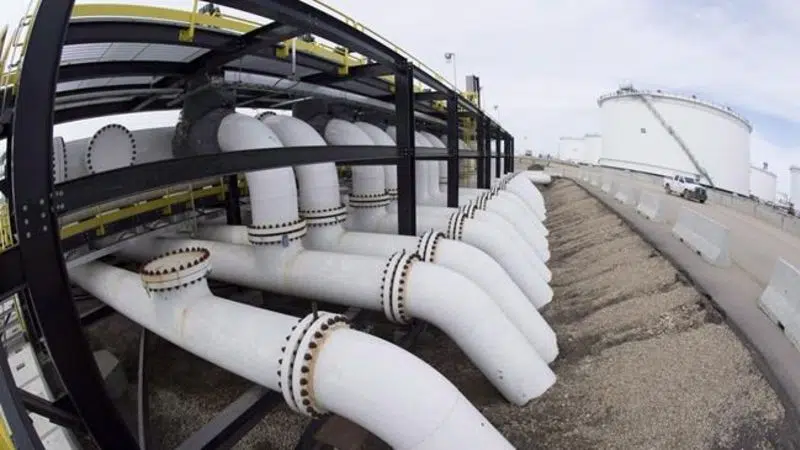
Federal judge grants B.C. injunction against Alberta’s turn-off-the-taps law
CALGARY — A Federal Court judge has granted the British Columbia government a temporary injunction against an Alberta law that could have limited oil exports to other provinces.
In a decision released Tuesday, Justice Sebastien Grammond said Alberta’s so-called turn-off-the-taps legislation raises a serious issue.
“British Columbia … has demonstrated that an embargo of the nature evoked by the members of Alberta’s legislature when debating the act would cause irreparable harm to the residents of British Columbia.”
The B.C. government initially brought the action before Alberta’s Court of Queen’s Bench, which passed it to the Federal Court.


